Op-Ed
Disinformation in a time of Covid-19: Weekly trends in South Africa

A crisis like the Covid-19 pandemic creates a perfect opportunity for those who wish to cause confusion, chaos, and public harm – and misinformation, as well as disinformation, enables them to do just that.
Our fifth edition of the weekly commentary looks at how disinformation circulation on digital media has continued to relate to Covid-19 conspiracy theories and those trying to benefit from fraudulent schemes. We continue to see attempts to define the pandemic as a show of power, instead of a very real public health threat, potentially putting thousands of lives in danger.
Disinformation and the sharing of disinformation is one of the greatest threats to a democracy, and we continue to witness the dangerous dissemination and sharing of disinformation across various social media and digital platforms.
The Real411 platform accepts complaints related to a variety of digital offences, including hate speech, incitement, harassment of journalists, and disinformation. The platform has been fully operational since 22 March 2020, and since then we have seen some dangerous disinformation circulating across our social media platforms.
Complaints have been submitted to the platform and action has been taken, often resulting in counter narratives being issued, or content being taken down. From 22 March to 28 June, 509 complaints have been received, 484 of which have been assessed and resolved.
This week, we wanted to offer a slightly different take on what we have seen over the past few months. The graph below depicts the number of complaints received on a weekly basis, and the number of instances of disinformation found in that same week. The trend we see, apart from a few exceptions, is that the higher the number of complaints, the higher the number of instances of disinformation found. Which makes sense.
What this also tells us is that the more aware the public is of disinformation, and the more public users submit complaints, the higher the chance of action being taken and counter narratives being disseminated. This is a positive finding.
Looking at this past week, 22 to 28 June, we see a very slight decrease (47% – 46%) in the number of complaints determined as disinformation, versus the number of complaints submitted as disinformation. Although the number of complaints has increased over the past week, the breakdown between what gets reported as disinformation, and what is determined to be disinformation, remains very similar (just under half of the reported disinformation is actually disinformation).
Looking at specific complaints, what have we seen in the past week? We take a look at the nature of complaints received on the platform between 22 and 28 June.
A total of 38 complaints were received over this period, 16 of which were found to be disinformation. This is a significant increase from previous weeks (23 complaints received last week). There seems to be an increase in complaints about xenophobia. Again, we have seen the resurfacing and recycling of conspiracy theories and disinformation targeted at encouraging non-compliance with regulations.
Each complaint that is submitted gets assessed by three different reviewers – each an expert in their fields, including media, tech and legal. Once a complaint is assessed, it is sent to the secretariat (who is a media lawyer), a final determination is made and further action is recommended, if necessary.
In our weekly analysis, we also take a look at where the complaints originate from, in other words, where instances of alleged disinformation have been found, and complaints submitted.
This week, the data shows us that most complaints received during the period came from Twitter (20 complaints), followed by Facebook (10 complaints) and then WhatsApp (seven complaints). Twitter seems to be a common platform from where complaints originate.
Weekly disinformation trends
Continuing with the trends we have seen over the past few weeks, disinformation complaints received shows us further attempts to encourage public resistance and noncompliance with public health protocols.
The content in this complaint alleged that the vaccine trials undertaken by the South African Medical Research Council, partnered with the Bill Gates Foundation, is actually an exercise to kill people. This is yet again another example of how extremely dangerous this type of conspiratorial disinformation can be.
The vaccine trial at Wits University saw a protest by approximately 50 people. Stories on this quoted some of the protestors repeating some of the conspiracies. It’s worth noting that while they were joined in their common opposition to the vaccine trial, the motivations were quite different. Some were quoted as arguing that traditional medicines had not been sufficiently tested, while others asserted that it was like going back to the 1980s when the HIV/Aids pandemic was exploding.
Interestingly, as is common with much disinformation, there were elements of truth to the assertions. In another video of the protest, a protester was talking about how diseases don’t kill most people. This is generally true, but the protestor used that to make the leap in logic to assert that there was, therefore, no need for a vaccine and thus the reason for the trial was to control our people.
Again, much of the anti-vaccine narratives have common threads of outrage linked to hot issues, like anti colonialism or government control. In any event, this complaint seems fairly typical around the pandemic.
Complaint #553 is something we have seen before, but shows that there are still attempts by dangerous people to take advantage of those in need. It’s a classic example of a scam. This one seems to be repeated, possibly by the same group of people. What makes it so offensive is that it trades on the fears and needs of the vulnerable. It is likely that those who would try it would be doing so out of dire need, and are likely to lose even more.
The following two complaints, #557 and #567, relate to disinformation encouraging people to resist government regulations and trying to persuade the public that health protocols in place are actually dangerous to your health. This type of content is extremely misleading and appears to be a deliberate attempt to cause public harm.
As the number of Covid-19 cases escalate, and as more people succumb to the disease, we anticipate an increase in the amount of disinformation. It is essential that everyone does all in their power to help curb the spread of the virus – but also help curb the spread of disinformation. Those who fabricate and spread false information need to be aware that they are contributing not only to further loss of life and the spread of the virus, but are also undermining our democracy.
One of the key reasons disinformation about Covid-19 spreads so easily is because so little is known about the virus, and general levels of awareness remain low. For these reasons, it is imperative that government and all partners continue to disseminate not only essential behaviour change communication, but also ongoing updates and information about the virus and what is being done to combat it.
The more people know and understand about vaccine trials and how they work, for example, the less likely they are to get away with spouting half-truths and fabrications.
We also know that disinformation spreads because it works on our emotions of fear, anger and anxiety.
Disinformation serves to heighten these feelings at a time when we need calm, greater compassion and more humility. It is telling that one of the seven lessons shared in this piece by health workers at the frontline, is the critical need for compassion and kindness.
As we all seek to combat disinformation, one of the most effective ways is to see if the piece heightens our fear, anxiety and anger. If it does, then check and recheck it for credibility.
If content cannot be easily found or verified, don’t share it. Report it to Real411. Then, equally importantly, exercise kindness and compassion on social media. Covid-19 has added new trauma to our nation and we all need a little compassion and kindness. DM



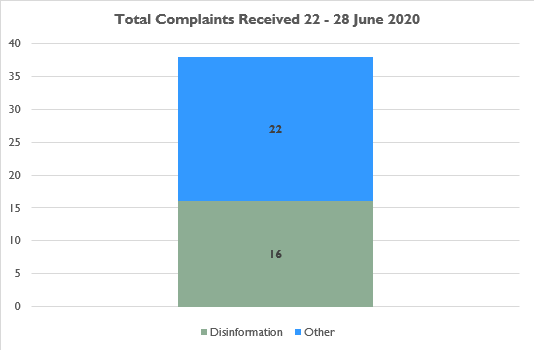
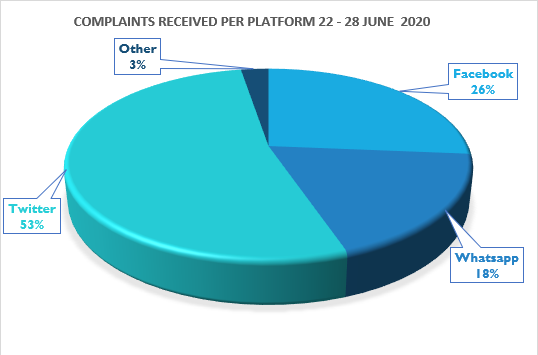
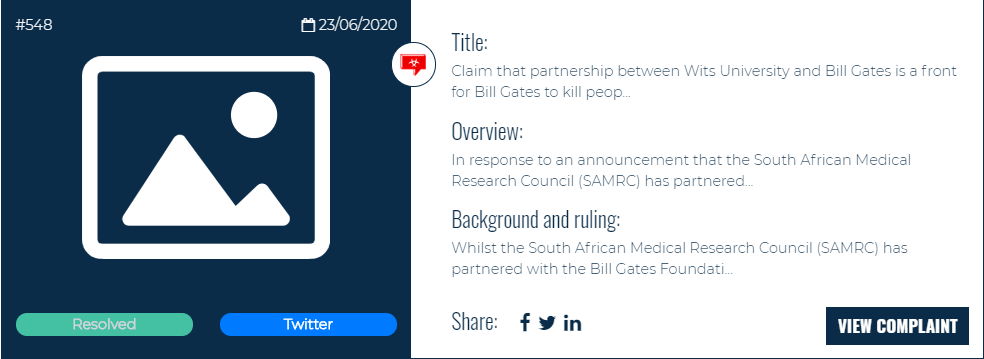

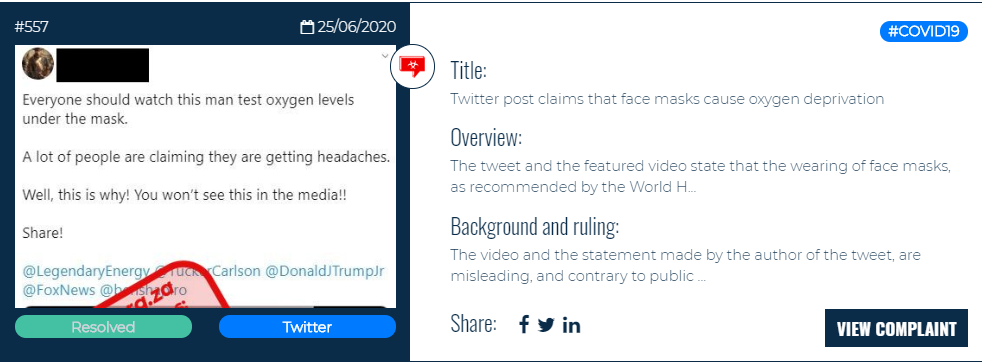
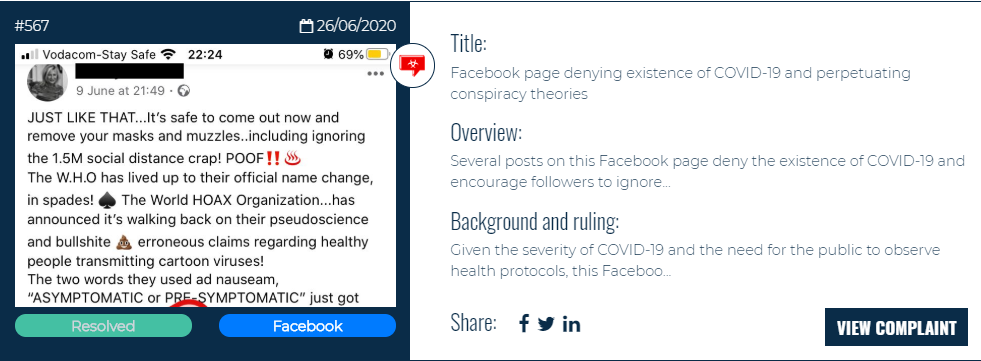
















 Become an Insider
Become an Insider